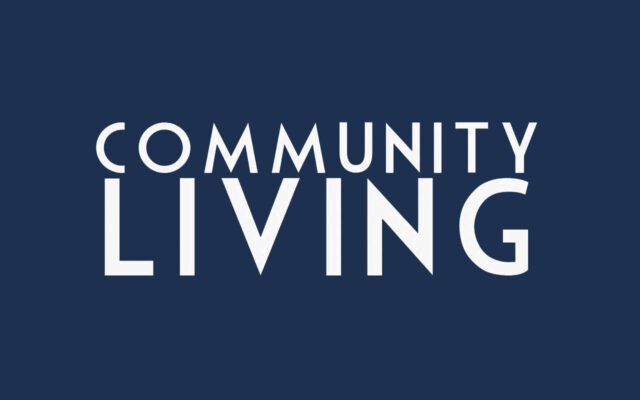Researchers have found that as many as 15 per cent of children and young people experience sexual abuse. Rosemary Trustam reports.
Research by a group led by Barnardo’s has drawn attention to the risks of sexual exploitation amongst children and young people with learning disabilities in the UK. It included extensive interviewing of young people, practitioners and policymakers, alongside online surveys of local authorities and specialist projects. In addition to the report, a guide to support practice has been published (1).
In the last issue of Community Living, Sue Sharples described Becky’s “lack of access to good information advice and education about sexuality and sexual health” and the “sadly not uncommon stories about enforced sterilisation, sexual assault”, lack of sex education and supporters who were “unable or unwilling to answer questions” (Taking the big leap, Volume 29, No. 1). These stories are echoed by the young people and others interviewed in this timely report launched on 10 September. Made possible by funding from Comic Relief, the research was led by a team from Coventry University, Paradigm Research and The Children’s Society, working in an innovative partnership with Barnardo’s and the British Institute of Learning Disabilities (BILD).
Sexual violence
The recent cases in Rochdale and Aylesbury showed how children and young people were not adequately protected but those with learning disabilities are even less so – the prevalence of violence is three or four times higher with as many as 15 per cent of children with learning disabilities experiencing sexual violence (2). They were also found to be particularly vulnerable to sexual exploitation by gangs and groups.
Despite the changes in policy and practice in community care and the emphasis on people (whether children, young people or adults with learning disabilities) having the same needs and desires as other people, they are not seen as requiring the same education about sex and relationships. There has been a false perception that they are not at the same risk of sexual exploitation as others and are thus also not provided with the same education about staying safe online or how to recognise grooming and other manipulative behaviour in their daily lives.
Under the Children and Family and Care Acts, local authorities are responsible for the physical, emotional and mental wellbeing of children and young people and specifically for protection from abuse. But their sexual needs are not in care and support plans – and certainly not considered as a matter of course in protecting them. We know good quality age-appropriate information protects young people so sex education – which discusses risks as well as positive relationships – is needed. However, the misconceptions amongst professionals and others also need addressing to ensure they have a comprehensive understanding and expertise.
This study, by drawing attention to the needs of young people with learning disabilities as they leave school, also highlights the real risks if there is no investment in relevant sex education in schools. It also found that a significant number of young people with mild to moderate learning disabilities, in particular those on the autistic spectrum or with ADHD (attention deficit hyperactivity disorder), remain undiagnosed during school and their frustration at not getting their needs met can lead to them being labelled as having challenging behaviours and even being excluded.
Generic teams
Although they found pockets of good practice, professionals in CSE and learning disability professionals mostly were not talking together or benefiting from their joint expertise. The tightening of eligibility criteria in adulthood without this earlier identification can lead to serious risks. There was also concern on the day about the impact of specialist expertise of the increasing moves to generic teams and less focus from health specialists increasingly pulled into more physical health areas.
Thus this group with more difficulties in learning receives less help and are denied the basic tools as they mature into adulthood. Too often, through misconceptions about people‘s supposed lack of sexual needs and desires, there is a lack of expertise in educators and other professionals, and a blinkered attitude to the very real risks to them from exploitation. Young people interviewed showed they are often unaware of their right to take some control; may be over-influenced by adults (who urge secrecy); are not listened to; and may be assumed not competent witnesses for a prosecution.
One case study, Tom who had autism, was groomed by an older man who told him he should keep their sexual relationship secret as ‘lots of people thought that people with autism shouldn‘t have boyfriends or girlfriends, and that they’d be angry with him if they knew he had a boyfriend‘.
Dominic Slowey, NHS England lead on learning disabilities, a practising GP and parent of a child with severe learning disabilities pointed out that as a society the UK is fairly poor at teaching anyone the legitimacy of sexual desire and made a plea for support to help young people’s development into sexual beings as a positive aid to appropriate relationships and protection. He said if young people have a learning disability then the first message tends to be protection and exploitation, and there is blurring in the distinction made between children and adults with learning disabilities with issues of capacity. He suggested that if we educate early enough and appropriately, then perhaps some young people might not go on to express legitimate desires illegally and end up in forensic services.
The UK’s failures under the international obligations in Article 34 of the UN Convention on the Rights of the Child (UNCRC) to protect the child from sexual exploitation were stressed by Dr Anita Franklin, Reader at Coventry University. She said the rights of protection and inclusion of young people with learning disabilities enshrined in the UNCRC and the UN convention on the Rights of Persons with a Disability, need implementing. These duties ought to ensure action by Government on the recommendations.
Age-appropriate
The Minister for Preventing Abuse and Exploitation, Karen Bradley, picked up on the recommendations in support of age-appropriate sex education with all children, including those with learning disabilities, to keep them safe. She commended the work of agencies like Barnado’s in opening the Government’s eyes. She referred to a government report earlier this year following the Rochdale and Aylesbury cases and the 40 per cent increase in child sexual offences. She spoke of additional resources being put into communication and information, and how the investment in a new information system means 20 forces have been connected to the database and all will be by the end of the year. She spoke about ensuring that the professional training of social workers, teachers, etc recognises these vulnerable groups. They are currently providing funding support to 86 organisations helping victims (with extra funding this is increasing to 101) and to 87 independent abuse advisers and 13 young people advocates to give direct support. They know more is needed. She ended by recognising the particular needs of children and young people with learning disabilities and said the recommendations need addressing but it requires everyone to work together.
The report notes a high level of activity, reports and action plans in relation to the risks for children and young people but most importantly now wants to see the inclusion specifically of the needs of this group with learning disabilities within this national action. Without this there is a real risk that action will continue to be piecemeal and casualties high.
References
1. Under-protected, Overprotected: meeting the needs of young people with learning disabilities who experience, or are at risk of, sexual exploitation. Download the full reports at http://www.barnardos.org.uk/cse-learning-disabilities
2. Jones L, et al (2012) Prevalence and risk of violence against children with learning disabilities: A systematic review and meta analysis if observational studies. The Lancet, Volume 380 (9845) pp 899-907.




